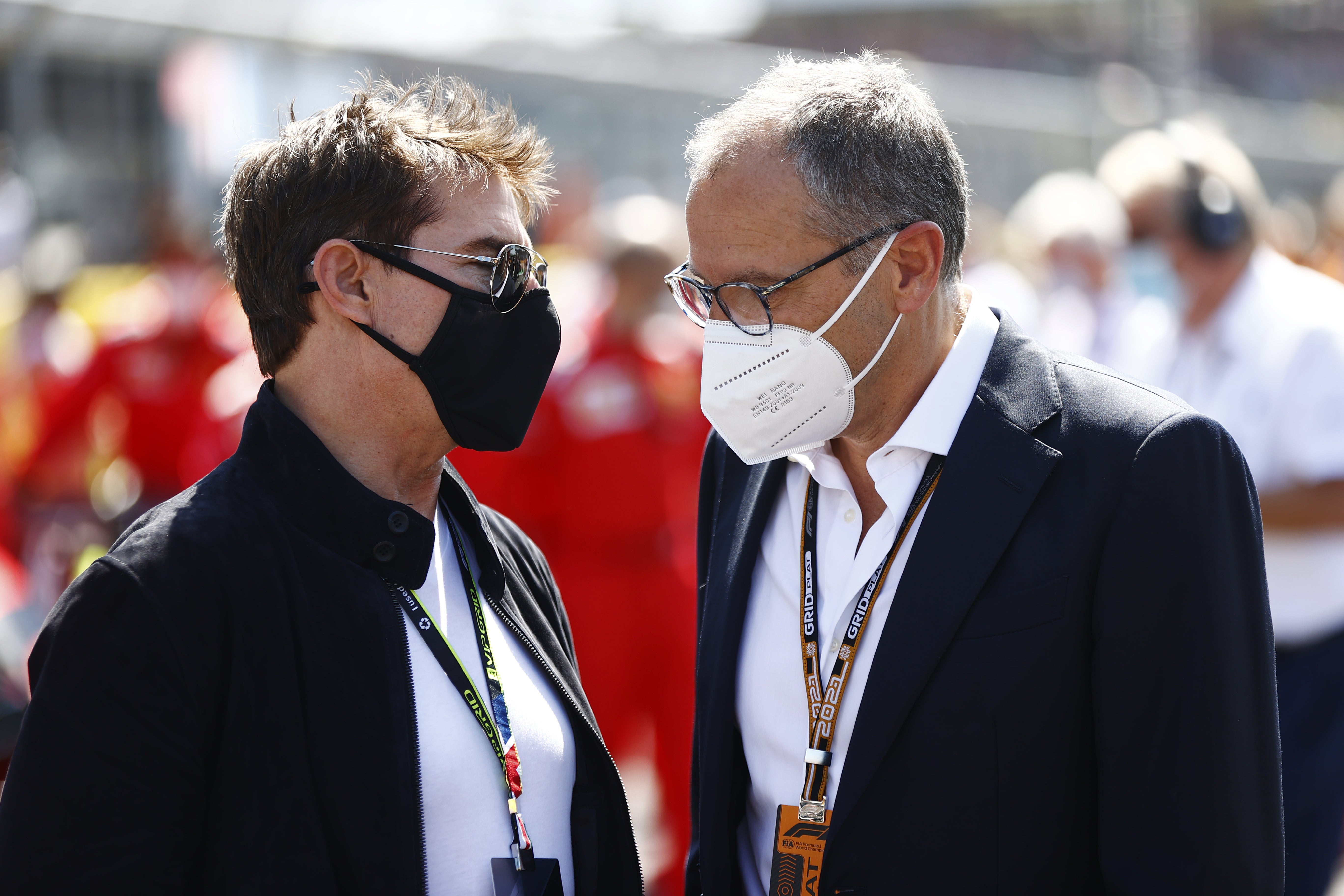Formula 1 defends hosting races in Qatar and Saudi Arabia after human rights criticism
Both nations are hosting races for the first time in the next few weeks

Your support helps us to tell the story
From reproductive rights to climate change to Big Tech, The Independent is on the ground when the story is developing. Whether it's investigating the financials of Elon Musk's pro-Trump PAC or producing our latest documentary, 'The A Word', which shines a light on the American women fighting for reproductive rights, we know how important it is to parse out the facts from the messaging.
At such a critical moment in US history, we need reporters on the ground. Your donation allows us to keep sending journalists to speak to both sides of the story.
The Independent is trusted by Americans across the entire political spectrum. And unlike many other quality news outlets, we choose not to lock Americans out of our reporting and analysis with paywalls. We believe quality journalism should be available to everyone, paid for by those who can afford it.
Your support makes all the difference.Formula 1 CEO Stefano Domenicali has defended the sport’s decision to host races in Qatar and Saudi Arabia, despite criticism of the Gulf nation’s records on human rights.
The former Ferrari team principal took over from Chase Carey as CEO in 2020 and has overseen the agreement of contracts with both countries which will reportedly see them host grand prix events for at least a decade. The first of the races is this weekend in Qatar, taking place at the Losail circuit which opened in 2004 and has primarily hosted MotoGP since then.
Saudi Arabia will follow a fortnight later at a temporary circuit built built on the coast of the Red Sea town Jeddah, before a permanent purpose-built location is constructed in future years. The Saudi city of Diriyah has also hosted a Formula E ePrix since 2018, and will kick off the 2022 season with the opening round at the end of January.
With Qatar set to host the 2022 Fifa World Cup, and the Saudi Arabian Public Investment Fund recently completing its takeover of Premier League side Newcastle United, ‘sportwashing’ — the idea that countries with poor human rights records can use the spectacle and glamour of major sporting events to distract from mistreatment of human beings — has been moved to the top of news agenda.
Domenicali, though, believes that Formula 1’s presence in the Gulf nations is an opportunity for them to make progress, rather than legitimising current practices. The Italian told the BBC: “Such an important change cannot happen overnight. It is a cultural change that will take time. But the timing will be accelerated by the fact big events are there. And Formula 1 will play an important role in that respect.
“If you look pragmatically at what they are doing, in terms of for example women, they have women in prominent positions in the organisation, they are working and respecting the regulations,” he added. “I believe the spotlight we are bringing will be beneficial for the will and the wishes of change that these countries are showing.
“I don’t believe that shutting countries off and saying we don’t want to be there will help the situation to improve. Actually, it will be the opposite. It doesn’t mean everything is perfect, but for sure what we are doing and what we are signing off is headed in the right direction.”
Amnesty International, the world’s most prominent human rights organisation, disagrees and has been highly critical of F1’s decision to race in both Qatar and Saudi Arabia.
In statement, they said: “Both of these countries have extremely troubling human rights records - from Qatar’s systemic mistreatment of migrant workers and its draconian curbs on free speech, to Saudi Arabia’s sweeping crackdown on human rights activists and the notorious murder of the journalist Jamal Khashoggi.
“In using the glamour and razzmatazz of F1 to try to distract attention from human rights abuses, Qatar and Saudi Arabia will hope there’s little to no discussion of human rights issues around these races - something that must not be allowed to happen.
“F1, the drivers and their teams should be prepared to speak out about human rights in Qatar and Saudi Arabia in the lead-up to the races, doing their bit to break the spell of sportwashing and its intended image-management.”
Formula 1 events at circuits in the Middle East have caused concern in the past, with the 2011 Bahrain Grand Prix cancelled to due anti-government protests as part of the Arab Spring before a controversial return to the calendar in 2012 which drew significant protests against the sport itself from civilians, human rights groups, and the UK’s Labour Party under the leadership of Ed Miliband.
Join our commenting forum
Join thought-provoking conversations, follow other Independent readers and see their replies
Comments